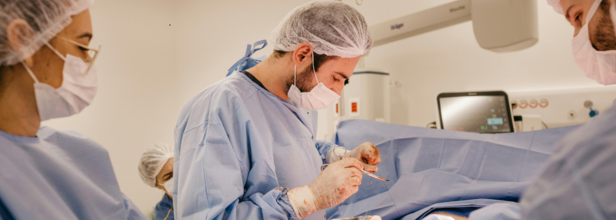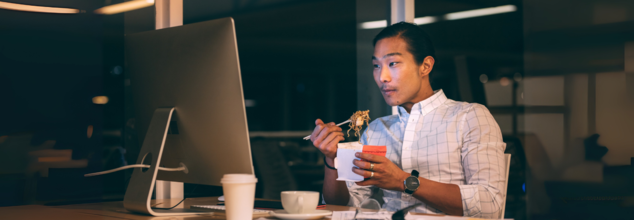- Health Conditions A-Z
- Health & Wellness
- Nutrition
- Fitness
- Health News
- Ayurveda
- Videos
- Medicine A-Z
- Parenting
- Web Stories
Love Travelling? Here's How Flying Frequently Impacts Your Health

Air Travel (Credit: Canva)
Why do we bloat on a plane? Why do we feel more drunk at 38,000 feet? Why Does Food And Drink Taste So Differently In Air? What makes our faces puffy during flights? Thanks to research, we know the answer to all this. Over the years, scientists have proven that frequent flying in aircraft has a profound impact on health- physical, mental and sexual.
Usually, in-cabin air pressure is akin to that witnessed at 5,000 to 8,000 feet. This is equivalent to when you are traversing a mountain or ski resort, where the oxygen deprivation is high. People who change time zones are likely to experience circadian rhythm (our inner clock) misalignment. This leads to a jet lag disorder (JLD), implying insomnia, increased stress, and alterations in hormonal production, regulation, and hormone production.
Another factor is humidity inside the aeroplane cabin. The optimal humidity is reported at ground level is around 40-70 per cent. However, humidity levels in aeroplane cabins are around 5-20%. This leads to dehydration and dryness. nose, throat, eyes, etc. This can make infections to spread quickly. Notably, a study by Austrian researchers has shown that a long-distance flight can dry out our skin by up to 37% and may lead to increased itchiness.
Beyond our physical bodies, frequent flights also have impact on our brains. Previous research has found that mild hypoxia (low level of oxygen reaching body tissues) can trigger anxiety, depression, negative emotions, panic attacks, claustrophobia along other mental health issues. It can also severely hamper our moods.
Frequent flying can also impact your sex life. Several types of research have pointed to a growing link between anxiety, claustrophobia, uncertainty (all witnessed during flights) and libido. Hormones like norepinephrine and epinephrine, lower testosterone levels, which in turn, affects libido and sexual function.
Factors associated with air travel can affect your menstrual cycle indirectly. They can lead to cycle irregularities. Experts have repeatedly pointed out that low air pressure leads to changes in estrogen in females and thus, makes their period cycles irregular.
July 4th Firework Accidents Are Common—Here’s How to Stay Safe

Credits: Canva
Fourth of July is here, and while it is a day of celebration, most commonly with fireworks, the same is also the reason why many end up in the emergency room or in the ER.
As HealthDay reports, on an average, around 250 people a day end up in the ER with fireworks-related injuries in the month before and also after Independence Day. More than 75% of these injuries are around the head, neck, arms, and hands, notes the American Academy of Facial Plastic & Reconstructive Surgery (AAFPRS).
Dr Patrick Byrne, who is a facial plastic and reconstructive surgeon and president of AAFPRS says, and is as reported by HealthDay, "These injuries can include burns, eye trauma and hearing or vision issues, and in some cases, disfigurement."
In a news release, he added that treatments to these burns often require multidisciplinary approach.
Prevention Is Always Better Than Cure
Staying safe during firework displays is easier than you think—just follow a few key precautions:
To begin with, it’s safest to enjoy fireworks at professional shows rather than setting off your own. Experts strongly recommend leaving the light show to trained professionals.
If you do use fireworks at home, never allow children near them—even sparklers can reach temperatures close to 2,000°F and cause serious burns.
Avoid touching or re-lighting fireworks that don’t go off (known as “duds”). Instead, wait at least 20 minutes, then soak them in water before safely disposing of them.
Always keep a bucket of water or a hose nearby in case of fire or malfunction.
If you’re lighting firecrackers yourself, do so one at a time, and step away quickly after ignition.
Fourth of July: A Day Of Celebration And Busiest ER Day
As per the Pew Research Center, more than 45,000 people visit the ER on July 4 and 5, each year. This is the highest number of daily medical emergency.
The New York Post reports and quotes Dr Ryan Marino, MD., an ER doctor and associate professor at Case Western Reserve University in Cleveland, Ohio, "his time of year, we see big increases in traumatic injuries and heat-related illness."
Dr Ryan also adds, "While fireworks accidents and injuries get most of the attention, there are far more falls, broken bones, head injuries and car accidents, just to name a few.”
Dr. Robert Biernbaum, an emergency medicine physician in Fairport, New York told the Fox News Digital, "We routinely see a sharp spike in preventable injuries and medical emergencies."
Most Common Injuries On July 4th
Dr Biernbaum says that most common injuries are fireworks "by far". “We see everything from minor hand and facial burns to severe trauma from fireworks exploding in close proximity,” he said. “Improvised or illegal fireworks tend to cause the worst damage.”
Dr. Betsy Koickel, chief medical officer of Memorial Hermann-GoHealth Urgent Care in Houston, Texas told the Fox News Digital that there are many kinds of firework injuries, including eye injuries, or hearing injuries. "ye injuries are particularly troubling, as they can include corneal burns, scratches or even permanent vision loss due to flying debris or sudden explosions. The loud blasts can also harm hearing, especially in young children, sometimes resulting in ringing in the ears (tinnitus) or even long-term hearing damage,” she says.
Other Common Injuries Include
Alcohol-related incidents: vehicle accidents resulting in head injuries and fractures; and alcohol poisoning
Grill burns and cooking accidents: As per the National Fire Protection Association, US, July is also the peak month for grill fires. It results in flash burns and cuts due to mishandling propane tanks or grills, especially on hands and arms.
Heat Exhaustion And Dehydration: Prolonged outdoor activity also leads to severe dehydration or even heatstroke. It can also lead to kidney damage.
Car and boat accidents: This is also related to alcohol-related incidents. However, speeding boat accidents are also common and could result in ruptured spleen and multiple fractures.
Drowning and Near drowning: As per the Centers for Disease Control and Prevention, July has highest number of drowning deaths as compared to all months.
This Year, Doctor's Day Reminded That Doctors Too Are Humans And Can Get Emotionally Exhausted

Credits: Canva
This year's Doctor's Day was a reminder to all that doctor's too are human. The theme specifically focused on healing the healers, emphasizing on the need for people to recognize doctor's struggle and treat them with empathy and sympathy.
No Lines Between Personal And Professional Life
Health and Me had earlier reported on how doctors, even when they are not at work receive work questions all the time. In a previous interview with Health and Me, Dr Guru N Reddy, a senior gastroenterologist, shared, “I didn’t spend time with my family when my kids were growing up. My work always came first and then came my family.” He also shared that how whenever he is gone for a gathering, it turns into an unofficial consultation desk. “Can I quickly show you this report?” “There’s this pain that won’t go, can you suggest something?” These are the questions he is faced with even at family events.
All such scenarios will undoubtedly make a doctor feel overwhelmed. In fact, a survey conducted by Medtalks, a doctor engagement platform, revealed that doctors are burdened by growing mental and emotional burden.
Also Read: Healthier Popcorn Alternatives You Can Try For Your July 4 Movie Nights
The survey, though small scale, conducted among 200 doctors across public and private health care, revealed an important issue. It found that 74% of respondents felt emotionally exhausted on a weekly or even on a daily basis. This survey also highlighted the depth of burnout and chronic stress in the medical profession.
Many doctors also agreed that even after their work hours, they were still entertained with questions related to their patients health through WhatsApp. The data revealed that over 83% of doctors felt that they were under constant stress as their patients continued to contact them through WhatsApp, phone calls, and digital messages, with many asking them for urgent queries. This round-the-check communication has blurred personal and professional boundaries, which has disassociated doctors from their own families.
Also Read: Measles Outbreak Update: Kentucky Confirms Its First Case
Looming Fear Of Threat And Violence On Doctors
The survey also found that threat and violence against doctors were a major source of stress and concern. Indian Medical Association (IMA) President, Dr Dilip Bhanushali, in an earlier interview with Health and Me had said, "Violence against doctors is not rare—it’s routine."
He further added: “We’ve seen mobs arrive with kerosene, petrol, even swords, burning down hospitals. There was a law during COVID promising seven years imprisonment and non-bailable warrants for attacks on doctors, but it hasn’t been enforced. Most states still have weak three-year, bailable punishments.”
He also pointed towards the RG Kar Medical College’s case where a female postgraduate trainee doctor was raped and murdered and her body was found in a seminar room on campus. Doctors across the nation went on a strike, demanding justice. “But we cannot go to the roads and do strikes every time. Despite it all, we uphold our Hippocratic oath.”
The survey too echoed the same feelings, where many respondents admitted that this fear has directly influenced their approach to diagnosis, communication, and decision-making. Doctors are now acting more defensively.
The strain on doctors is intensified by mounting administrative duties, fear of legal action, limited institutional support, and rising expectations to deliver flawless outcomes.
Over one-third of doctors reported working more than 60 hours a week, while only 17 percent are able to take a full, uninterrupted day off on a regular basis. Most respondents said they receive minimal support in coping with these demands. Strikingly, just 14 percent felt the current healthcare system allows them to prioritise their own wellbeing, whereas 52 percent said it does not.
Later Dinners Are A Recipe For Disaster - Study Finds The Best Time To Eat Dinner For Health

When it comes to dinner, many of us focus on what we eat, aiming for healthy and delicious food. But we often don't think about when we eat it, squeezing dinner in whenever our busy schedules allow. However, a growing amount of research suggests that when you eat can be just as important for your health as what you eat. And it seems that eating dinner earlier might be the way to go.
What's the Best Time for Dinner?
Scientists haven't found one single "perfect" dinner time, but it's generally best to avoid eating late for your metabolism. Try to finish dinner at least two hours before you go to bed, and ideally even longer. According to a 2024 study published in the JAMA Network Open, good goal is to eat dinner sometime between 5 p.m. and 7 p.m.
Of course, life happens, and sometimes you'll have to eat later. If it's just occasionally, don't worry too much. Just try not to eat a very large meal right before bed. In fact, research suggests that dinner shouldn't be your biggest meal of the day, which is different from what many Americans are used to. Instead, try to eat most of your calories earlier in the day, around when you wake up or in the middle of the day.
Why Does When You Eat Dinner Matter?
Our bodies have internal "clocks" that manage how we function throughout the day. This means that the exact same meal can affect your body differently depending on the time you eat it.
For instance, one study found that when healthy young adults ate the same dinner at 10 p.m. instead of 6 p.m., their blood sugar levels went higher and their bodies processed fat less effectively. Late dinners can have this impact even if you're not eating right before bed.
One reason for this could be melatonin, a hormone your body releases at night to help you sleep. As melatonin levels rise, it seems to make it harder for your body to control blood sugar, leading to bigger and longer-lasting spikes after a late meal. Research also shows that eating dinner late can make you hungrier, cause your body to burn fewer calories, and even lead to changes in your body that promote fat gain.
How Late Dinners Affect Your Health
While many studies on meal timing are done in controlled lab settings, the findings suggest that regularly eating dinner late could increase your risk for health problems like type 2 diabetes and obesity. Many studies have already shown this connection. On the other hand, eating more of your calories earlier in the day seems to help with weight loss and improve signs of good metabolic health.
It's not just about metabolism either. Other research suggests that people who stop eating after 6 p.m. tend to get more sleep than those who eat until midnight. There's even a serious study from 2024 that links late eating to a higher risk of death. So, the general advice is clear: for most people, it's best to limit how much food you eat during the nighttime hours.
Tips for Eating Dinner Earlier
If you're used to eating late, changing your routine can be tough. To make the switch easier, start by making changes earlier in your day. If you often skip breakfast and grab a quick, small lunch, you'll likely be very hungry by evening. So, make sure you eat good, hearty meals earlier in the day that include plenty of protein, fiber, and healthy fats. This will help you feel less hungry at night.
Some people also find it helpful to set a specific "cut-off time" after which they stop eating, rather than just vaguely aiming for an earlier dinner. If you try this, it's okay to start small. Begin by closing the kitchen just 30 minutes before bedtime, then extend it to an hour, and so on. The key is to start where you are and build up gradually.
© 2024 Bennett, Coleman & Company Limited

